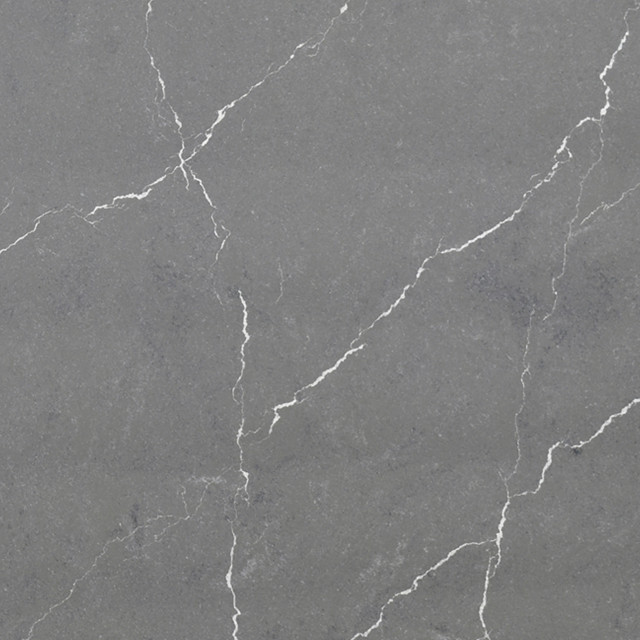Workers making the most popular type of countertop sold in the United States are at risk for potentially deadly lung disease, a new study finds. The risk owes to the tiny particles of dust produced while cutting, shaping and polishing the synthetic quartz. Advertisement Inhaling the dust causes the same lung damage, called silicosis, seen for centuries in miners and cutters of natural stone. Engineered stone, however, is more dangerous because of its high concentration of silica, found in sandstone, and the polymer resins and dyes added to the synthetic quartz, according to researchers. "Increasing case counts of silicosis among stone fabricators over the last 10 years and accelerated progression of disease transforms the paradigm of an all-but-previously-forgotten disease in the U.S.," said lead researcher Dr. Jane Fazio, a pulmonary specialist with UCLA Health in Los Angeles. Related Study: Black people far more likely to suffer heart damage after chemotherapy Mint-flavored e-cigarettes more damaging to lungs, vaping study finds Study: Too much oxygen during surgery may harm kidneys, hearts and lungs The study shows severe illness and premature death among a "particularly vulnerable group of young underinsured and likely undocumented Latino immigrant workers," she said. The risk was first identified in Israel in 2012. The first U.S. case was identified in Texas, and California is now epicenter of the disease. For the study, Fazio's team identified 52 engineered-stone workers with silicosis in California, 51 of whom were Hispanic immigrants. Advertisement Leobardo Segura-Meza, now 27, has been a stone worker for 10 years. Despite taking health precautions by wearing a mask and using dust-reducing tools, he went to the emergency room with shortness of breath in February 2022 and was diagnosed with silicosis. He has been on an oxygen tank since and can no longer support his wife and three young children, researchers said. Segura-Meza has been approved for a lung transplant, but fears he will die before that happens. Two other stone workers died while on the waiting list. "Every day I hope that the phone rings telling me to come to the hospital to get my new lungs," Segura-Meza said in a University of California, San Francisco news release. "Our paper raises the alarm," researcher Dr. Sheiphali Gandhi, a UCSF pulmonologist, said in the release. "If we don't stop it now, we're going to have hundreds if not thousands of more cases. Even if we stopped it now, we're going to be seeing these cases for the next decade because it takes years to develop." The findings were published recently in JAMA Internal Medicine. More information The American Lung Association has more on silicosis. Copyright © 2023 HealthDay. All rights reserved. Advertisement Latest Headlines Health News // 5 hours ago Faster walking speed associated with slower risk of diabetes People can walk away their risk of developing Type 2 diabetes -- but only if they walk fast enough, a new report finds. Health News // 6 hours ago Study links brain inflammation to mood problems in Alzheimer's Brain inflammation appears to influence the mood problems of Alzheimer's patients, rather than traditional markers of the disease like amyloid beta or tau proteins, researchers report. Health News // 7 hours ago Diabetes drug Mounjaro outperforms Ozempic for weight loss in early trial The diabetes drug Mounjaro prompted more weight loss among overweight and obese adults than Ozempic did in a real-world setting, researchers report. Health News // 9 hours ago Early coronary heart disease strong predictor for dementia, study finds LONDON, Nov. 29 (UPI) -- People diagnosed with coronary heart disease in early middle age are at much higher risk of developing dementia in later life than people with healthy hearts, a new Chinese study of 430,000 Britons found. Health News // 1 day ago Personal coaching may ward off Alzheimer's A new study suggests that personalized health and lifestyle changes can delay or even prevent memory loss for older adults at high risk of Alzheimer's or dementia. Health News // 1 day ago New COVID-19 variant is spreading, poses 'low' public health risk The prevalence of a highly mutated COVID-19 variant has tripled in the past two weeks, new government data shows. Health News // 1 day ago Stem cell injection may protect against decline in MS Stem cells injected into the brains of multiple sclerosis patients appear to protect them against further damage from the degenerative disease, a new study shows. Health News // 1 day ago Soccer ball heading may impair brain function, study says NEW YORK, Nov. 28 (UPI) -- Soccer players who hit the ball with their head may suffer a measurable decline in brain function, according to new research to be presented this week at the annual meeting of the Radiological Society of North America. Health News // 2 days ago Building up thighs may prevent knee replacement Squats and lunges aren't the most fun exercises, but a new study says they'll help save your knees. Health News // 2 days ago People with long COVID exhibit structural changes in brain, scans show People with long COVID exhibit brain changes that are different from the brains of fully recovered COVID-19 patients, a new brain scan study reports.
Workers making the most popular type of countertop sold in the United States are at risk for potentially deadly lung disease, a new study finds. luna pearl granite

The risk owes to the tiny particles of dust produced while cutting, shaping and polishing the synthetic quartz. Advertisement
Inhaling the dust causes the same lung damage, called silicosis, seen for centuries in miners and cutters of natural stone. Engineered stone, however, is more dangerous because of its high concentration of silica, found in sandstone, and the polymer resins and dyes added to the synthetic quartz, according to researchers.
"Increasing case counts of silicosis among stone fabricators over the last 10 years and accelerated progression of disease transforms the paradigm of an all-but-previously-forgotten disease in the U.S.," said lead researcher Dr. Jane Fazio, a pulmonary specialist with UCLA Health in Los Angeles. Related Study: Black people far more likely to suffer heart damage after chemotherapy Mint-flavored e-cigarettes more damaging to lungs, vaping study finds Study: Too much oxygen during surgery may harm kidneys, hearts and lungs
The study shows severe illness and premature death among a "particularly vulnerable group of young underinsured and likely undocumented Latino immigrant workers," she said.
The risk was first identified in Israel in 2012. The first U.S. case was identified in Texas, and California is now epicenter of the disease.
For the study, Fazio's team identified 52 engineered-stone workers with silicosis in California, 51 of whom were Hispanic immigrants. Advertisement
Leobardo Segura-Meza, now 27, has been a stone worker for 10 years. Despite taking health precautions by wearing a mask and using dust-reducing tools, he went to the emergency room with shortness of breath in February 2022 and was diagnosed with silicosis. He has been on an oxygen tank since and can no longer support his wife and three young children, researchers said.
Segura-Meza has been approved for a lung transplant, but fears he will die before that happens. Two other stone workers died while on the waiting list.
"Every day I hope that the phone rings telling me to come to the hospital to get my new lungs," Segura-Meza said in a University of California, San Francisco news release.
"Our paper raises the alarm," researcher Dr. Sheiphali Gandhi, a UCSF pulmonologist, said in the release. "If we don't stop it now, we're going to have hundreds if not thousands of more cases. Even if we stopped it now, we're going to be seeing these cases for the next decade because it takes years to develop."
The findings were published recently in JAMA Internal Medicine.
The American Lung Association has more on silicosis.

quartz stone Copyright © 2023 HealthDay. All rights reserved. Advertisement